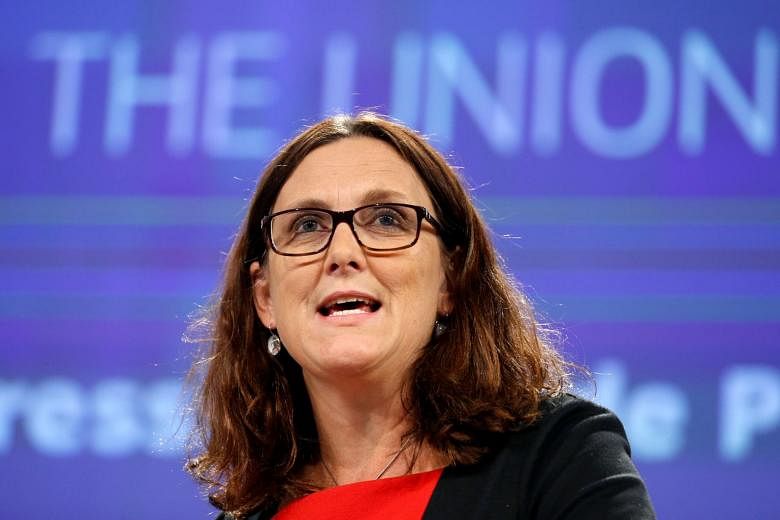UNITED NATIONS (AFP) - About 60 countries led by the European Union has launched a bid at the United Nations to end the trade in goods like electro-shock batons and lethal drugs used to carry out torture and death sentences.
The campaign will have a particular effect on the United States, which makes widespread use of lethal cocktails for capital punishment, and also China, Iran and Saudi Arabia - the world's top executioners.
The United States is under fire for its use of body-worn electric shock devices like stun belts that are widely used by law-enforcement officials.
"Even when such devices are worn but not activated, they constitute ill-treatment, maintaining the wearer in constant fear of instant pain for as long as they are worn," according to a report by the Omega Research Foundation, an independent group based in London.
The European Union was joined in leading the campaign by Argentina and Mongolia. Canada and major Latin American nations including Brazil, Chile and Mexico also signed the non-binding statement on the torture trade.
Participation from other regions was slim but the statement was also backed by Armenia, Madagascar and the Seychelles.
The European Union, which has made combating torture and the death penalty a foreign policy priority, has taken steps since 2005 to outlaw trade of these goods.
Five years ago, it imposed strict controls on exports of drugs that can be used in lethal injections.
Last year, it ordered a ban on the transit of torture equipment on the territories of the 28 EU countries and through European ports.
EU Trade Commissioner Cecilia Malmstrom maintains the measures are having an impact, with a drop in manufacturing of these items in Europe.
A halt in the production of chemicals used in lethal cocktails has led to a price increase, making their use costlier.
But she distanced the plan from the debate on capital punishment in the United States, saying: "It is not targeted against any country." "We see that this has effect but we need to go global - that's what we are doing today," she said.
"Torture is banned by international law; still we know it's happening and sometimes it's happening in the name of the fight against terrorism," she said.
The countries that join the alliance commit to restricting exports of these goods, to monitoring trade routes and sharing information on new products that turn up on the market.
The ultimate goal is to draft an international convention banning the trade of goods used for torture and for capital punishment.
"These products serve no other purpose than inflicting terrible pain and killing people. We should never permit that they are traded like any other commodity," said Malmstrom.
"It's time for concrete action to shut down this despicable trade."

